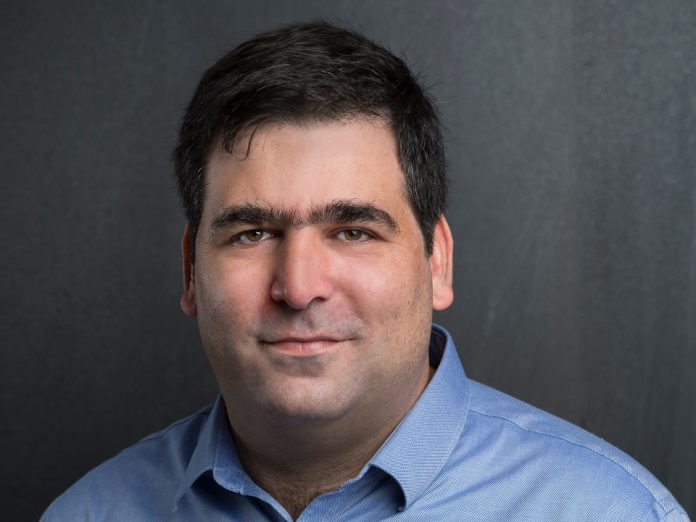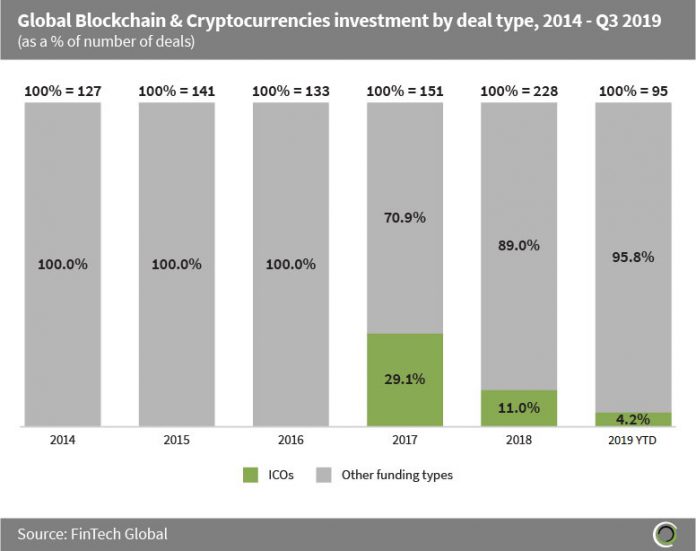The founder of Libra rival Saga reveals why he believes the new digital currency might be more successful than the Facebook project.
Saga is here. First announced in 2018, the cryptocurrency was officially launched on Tuesday. It has the ambition to create a global alternative to money issued by central banks. But first, it has to ensure it can secure the trust of the public and regulators.
But Ido Sadeh Man (pictured), the founder and chairman of Saga, is bullish about his chances. Speaking with FinTech Global, he highlights that the Saga token’s (SGA) advisory board consists of top economists like Noble Prize laurate Myron Scholes, the former JPMorgan Chase International chairman Jacob Frenkel, the former deputy attorney general of Israel Avi Licht and a slew of academics. He also argues that Saga has structures in place to avoid the volatility linked to cryptocurrencies like bitcoin.
Nevertheless, convincing people to buy the token and gaining the trust of regulators is not easy. Libra has been struggling with ever since it was first announced in June. The cryptocurrency project has been bombarded with concerns, criticism and downright hostility from lawmakers and regulators.
Several original members of the Libra Association, the organization behind Libra, budged under the intense scrutiny and jumped ship. So far, Stripe, Mastercard and Visa are among the backers that have abandoned the project.
In an attempt to sooth some of these worries, Facebook’s CEO and founder Mark Zuckerberg endured a six-hour long marathon interrogation from the United States House of Representatives Committee on Financial Services in October. It did not help much.
European lawmakers have been similarly pessimistic. After an autumn of warnings from politicians and regulators across Europe, the EU’s finance ministers issued a statement at the beginning of December, saying that no private digital currencies should begin to operate within the Eurozone before the risks have been thoroughly defined.
“Many of these concerns are extremely legitimate,” Sadeh Man says. Yet, he seems hopeful Saga can overcome these obstacles thanks to its strict anti-money laundering (AML) safeguards, democratic structure and its non-profit principles.
Traditionally, cryptocurrencies like bitcoin has given token holders the opportunity to move money around anonymously. Criminals have been quick to leverage this to extort companies through ransomware, finance terrorism and to buy illegal substances on the infamous Silk Road.
Neil Walsh, chief of the Cybercrime and Anti-Money-Laundering section of the United Nations’s Office on Drugs and Crime, has said the anonymity makes it difficult to catch criminals.
Saga has done away with this anonymity. “The anonymous nature of most of those currencies has nothing to do with the technology – it’s mostly an ideological choice that prevents efforts of AML, that prevents efforts to combat tax evasion, etcetera,” Sadeh Man says.
Instead, prospective SGA token holders must be on the Saga whitelist, which they can only be on if they subject themselves to a rigorous onboarding process.
To appease regulators further, Sadeh Man claims Saga’s policy is already stricter than the guidelines of the EU’s Fifth Anti-Money Laundering Directive.
Still, that has not been enough for the company to enter the US, which Sadeh Man blames on a lack of clarity from the regulators on whether or not the company would be compliant with the nation’s laws.
“So, unfortunately, US citizens currently cannot interact with Saga cause we cannot ensure that we’re in full compliance with US regulation,” Sadeh Man says. “I hope this will change soon.”
Similarly, he hopes these efforts will eventually garner Saga a warmer welcome from regulators than the one so far given to Libra.
The entrepreneur acknowledges the two initiatives share many similarities. “Both Saga and Libra are looking to offer a global currency,” Sadeh Man admits. “At the same time, there are many differences between the projects.”
Contrary to Libra, he says Saga is not looking to create its own asset basket. Instead, whenever someone buys an SGA token, the money used for the transaction would be deposited into an International Monetary Fund’s special drawing rights (SDR) basket, providing a stabilising quality to reduce volatility. “Central banks are using these baskets to hold their reserve,” Sadeh Man says.
However, he adds that the Saga model is built to reduce the reliance on the basket as the economy around it increases. “We’re taking to it 100% when the economy is very small [but] the reliance on the reserve decreases as the economy gets stronger and a more able to sustain a stable independent value,” Sadeh Man explains.
A second key difference between Saga and Libra is how the two currencies would be governed. “We have strayed from a corporate structure where the members and shareholders are making decisions in favour of a democratic structure,” Sadeh Man continues.
This democratic structure works like this: each SGA holder will have the right to exercise their sovereignty by electing Saga’s executive council, which is described as “an elected team of experienced professionals in charge of managing Saga’s ecosystem and operations.”
SGA holders can also participate in the assembly, giving them an opportunity to raise concerns. Each holder has one vote. The assembly can also, if need be, dissolve the executive council.
Next there is the constitutional council, which Saga describes as its supreme court. It is set up to resolve disputes between Saga entities.
Saga’s monetary committee is aimed at ensuring the long-term stability of and soundness of the currency.
Sadeh Man claims this mixture of decentralised and centralised governance ensure that each holder’s voice is heard without negating on efficiency as Saga can rely on the expertise of experts.
“There are many different advantages to decentralisation and many different advantages to centralisation,” he says. “What was important to us all along [was to not break away] from the target, to ensure that the sovereigns of the currency, the sovereigns of the organization, are the holders of the currency and not a shareholder-appointed board of directors.”
Saga is structured as a company based on non-profit principles that only acts as the issuer and will not create a digital wallet like Facebook will be doing with Calibra. “I think that one strong distinction needs to be drawn between the payments network and the issuance of the currency,” says Sadeh Man.
While Calibra makes a lot of sense to him and that he does not doubt Facebook is “perfectly poised to offer the world a better frictionless payment system,” Sadeh Man believes Libra’s structure creates questions of legitimacy.
“Corporations are designed to carry profits for their shareholders, which is a fully legitimate design,” Sadeh Man continues. “But when it comes to issuing a currency, we believe the currency issuer’s legitimacy comes from answering to the currency holders. I think that the strikes a very big difference between us.”
Saga’s backers – which include venture firms Lightspeed, Mangrove Capital Partners, Vertex Ventures, lool ventures and Singulariteam, the private investment fund Sadeh Man co-founded in 2013 – will not go home empty-handed if the project proves a success.
“The way we dealt with it was to issue a second currency called Saga Genesis (SGN), which you can consider the warrant on Saga,” Sadeh Man explains. One SGN cannot be worth more than 15 SGA. The idea is that as the value of SGA increases, the investors will be able to cash out in a similar way to how an initial coin offering (ICO) works.
To some, this might warrant some concern as ICOs have been linked to multiple scams since they first became popular in 2017. That year, 29.1% of the investment deals in the global blockchain and cryptocurrency market were ICOs, according to FinTech Global’s data. Since then, the number of ICOs shrunk to a mere 4.2% of the sector’s deals in the first nine months of 2019.
Nevertheless, Sadeh Man believes that there is a need for a currency that enables smooth cross-border transactions. “We are all to some extent global citizens, whether it is because we shop on Amazon or travel to London and we are increasingly exposed to global economic considerations and, therefore, [envisioning] a global currency to serve a global economy is quite inspiring,” he says.
Saga’s launch on Tuesday was the culmination of two years’ worth of work. “It’s a bit like expecting a child – you get used to expecting it and, then, here it is,” he says. “I have to catch myself to not speak in future tense anymore, but in present tense. It’s very exciting. And as the day clears, I will take ten minutes to celebrate, but then, really, this is just the beginning.”
Copyright © 2019 FinTech Global












